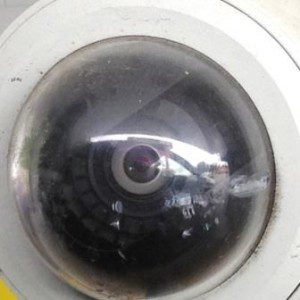It is Easy to Violate a Clientã¢â‚¬â„¢s Right to Autonomy in a Desire to Protect Them
Standard / by / November 10, 2013 / 22 Comments

Surveillance cameras sprout like weeds at traffic lights, stores, schools and nearly every other corner of society.
Increasingly, the watched ask what about privacy and the liberty right to move about freely?
This brings up the issue of privacy in court cases.
Surveillance Cameras: Court Cases
A young woman goes to the back of the office building where she works to change clothes. She later learns a surveillance camera caught everything, including the times when she had severe sunburn, went to what she thought was a private area, unbuttoned her blouse and applied prescription ointment.
Do Courts Uphold Surveillance in Claims For Invasion of Privacy?
In another case surveillance video documents a school maintenance man walking into a classroom, going through the teacher's desk and removing an envelope full of cash. Was the District Court correct in suppressing the video surveillance, holding it an unconstitutional search, violating the Constitution?
The Fourth Amendment to the U.S. Constitution protects against unreasonable searches or in this case intrusions by surveillance camera where there is a reasonable expectation of privacy.
Court Rulings on Surveillance Cameras
In the first case the woman changed in the back of the office before and after hours when she thought she was alone. This was a business office, part of a college in downtown Salem, Massachusetts with a large plate glass window in the front. She only changed when no one was around, when no clients or visitors were expected.
The issue for the court asked whether she had a reasonable expectation of privacy. True, she maintained an actual expectation of privacy. Her problem was whether that expectation measures up to what society recognizes as reasonable.
In the case of Nelson v. Salem State College decided in 2006 by the Massachusetts Supreme Judicial Court, the court held there was no reasonable expectation of privacy in the office. The hidden video camera presented no violation.
What about the janitor caught on camera pilfering money from the teacher's desk drawer?
Some cases hold that a reasonable expectation of privacy exists in areas devoted to an employee's exclusive use. Such private areas include desks and file cabinets not shared with other employees. But this took place in a classroom, open to teachers, students and school staff.
The maintenance worker did not have exclusive use and control of the room. His job required him to go there. So, in the case of State v. McLellan the court found no reasonable expectation of privacy, holding that the surveillance camera violated no constitutional right. The New Hampshire District Court order suppressing the video evidence was overturned.
Surveillance Cameras: The Fourth Amendment
Constitutional protections against surveillance cameras apply only where reasonable expectation of privacy exists. This Fourth Amendment right requires two conditions, first, an actual expectation of privacy and second that the expectation is one that society as a whole recognizes as legitimate.
The less private an area is, the less likely a reasonable expectation of privacy exists. There's less privacy expectation in an office than a home. Where surveillance cameras are installed in open work areas, schools, ATMs, and shopping areas they generally don't violate a constitutional privacy right.
Philosophical and practical personal quandaries invoked by such issues have been addressed by many from George Orwell to George Carlin. That's beyond the scope of a brief legal blog highlighting the reasonable expectation of privacy and whether it protects against surveillance cameras.
For other personal injury blog posts click here.
Source: https://attorney-myers.com/2013/11/surveillance_cameras_reasonable_expectation_privacy/
0 Response to "It is Easy to Violate a Clientã¢â‚¬â„¢s Right to Autonomy in a Desire to Protect Them"
Post a Comment